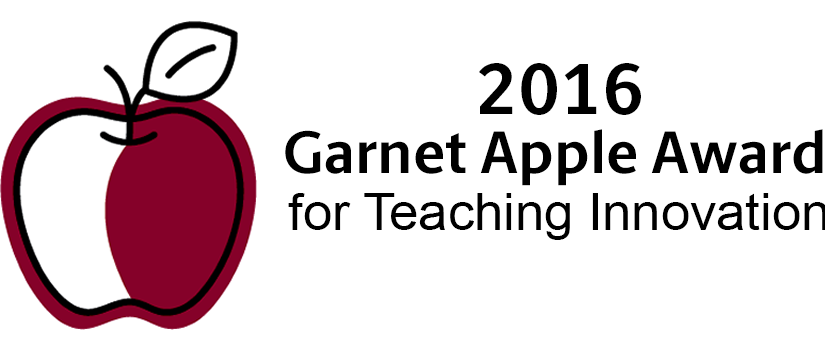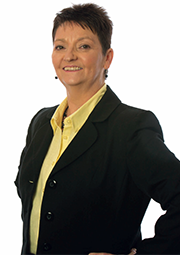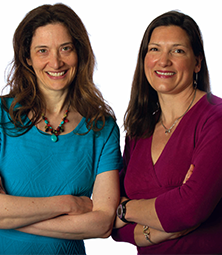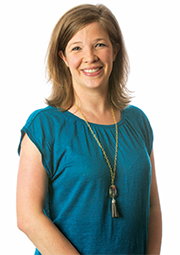Tena B. CrewsProfessor Tena Crews has wanted to be a teacher ever since she had a teacher. “When I was in kindergarten, I wanted to be a kindergarten teacher. In the first grade, I wanted to be a first grade teacher. And in the second grade … I see a pattern,” says Crews. “I eventually went to college, so I wanted to be a college teacher.” Crews is also director of online learning and development and program chair for the college’s Bachelor of Arts in Interdisciplinary Studies degree. Her research focuses on innovative techniques for teaching online, effective online course design and improving the student learning experience. She enjoys helping others become more comfortable teaching and learning in online and face-to-face classrooms. “Just as students can improve how they learn and focus on what they learn, we, as faculty, can improve how we teach and what we teach,” she says. “When students see the connection between the course content and the real world, the ‘light goes on’ and it’s energizing to watch and be a part of the transition.” Learn more about Tena Crews in the UofSC News story Garnet Apple Winner Has Lifelong Love of Teaching. |
|
Lara Ducate and Judith KalbProfessor, Associate Professor Along with creating an innovative comparative literature class together, Lara Ducate and Judith Kalb share something else: Since childhood, both wanted to be teachers. “I always liked to play school,” Ducate recalls. “One of my first memories is nursery school, teaching another kid how to tie his shoes,” Kalb says. Ducate, an associate professor of German and applied linguistics, and Kalb, an associate professor of Russian and comparative literature, used a grant from the Office of the Provost to create a first-year online comparative literature course titled Values and Ethics in Literature. It’s the university’s only course that simultaneously satisfies the two Carolina Core requirements of aesthetic and interpretive understanding and values, ethics and social responsibility. Students explore ethical themes from several literary traditions — among them Russian, American, Irish and Chinese — and react to the material through analysis and critique and by writing blog entries that connect class readings to their own experiences. Kalb’s passion for literature and Ducate’s expertise in pedagogy and technology came together to create the course — “a great meshing of our disciplines and expertise,” Ducate says. Learn more about Laura Ducate and Judith Kalk in the UofSC News story Literature, Ethics and Technology Combine for Special Learning Experience. |
|
Brianne DunnAssociate Dean, Outcomes Assessment and Accreditation When Brie Dunn traded her hard hat and steel-toed shoes for a Pharm.D. degree, she did more than change careers from laboratory chemist to clinical pharmacist. Becoming a pharmacist put her on the path to teaching, something she had never pictured herself doing until joining the pharmacy faculty at Carolina six years ago. It was unfamiliar terrain, but she quickly sought out resources such as the Center for Teaching Excellence and other colleagues to gain a better understanding of educational philosophy. “Students say I have an ability to explain things in an easy-to-understand fashion. Sometimes, I might explain it six different ways so that everyone understands,” she says. Dunn’s love for technology led her to use educational technology tools that present students with case scenarios, testing their pharmaceutical knowledge and decision-making skills. “I also create games for them so they can challenge themselves and test their knowledge. I like to engage them in active learning,” she adds. Dunn divides her working time between the pharmacy college and Palmetto Health Richland, where she works as a clinical pharmacist in cardiology. Two different pharmacy students accompany her each month — providing yet another teaching opportunity. Learn more about Brianne Dunn in the UofSC News story Pharmacy Professor Takes Roundabout Route to Teaching. |
|
Allison MarshAssociate Professor For learning beyond the traditional classroom, look no further than Allison Marsh, director of USC’s public history program, whose forays into the virtual world bring an added dimension to online learning. “There’s been a big push to experiment with classes online,” says Marsh. “I went in a little bit of a skeptic.” But she’s now a believer. Consider Material Culture in a Digital Age, a course Marsh developed following a fellowship at the Smithsonian Institution. She designed the course around the Smithsonian’s digital initiatives, then analyzed her students’ experiences with Smithsonian website videos, photos and 3D images. “The course itself became a research project about online learning,” Marsh says, “about how my department can create online classes that challenge students to think.” Marsh hasn’t abandoned the real for the virtual, though. Last year she took graduate students to Guantanamo Bay, where they learned about the military presence the U.S. has had there since the late 19th century. “They had to question their own assumptions and preconceptions multiple times a day. They became much more conflicted as they discovered that things aren’t so black and white as they might have thought. Well, that’s what learning looks like.” Learn more about Allison Marsh in the UofSC News story Allison Marsh: Public History in 3D. |
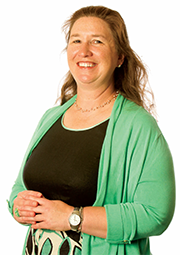 |
Caryn OuttenProfessor As a teacher, Caryn Outten achieves her greatest success when she passes on to biochemistry students an enthusiasm that comes to her naturally. “I like biochemistry because you can see how it applies to everyday life, how it’s relevant to health,” she says. “It’s really interesting to understand how our cells work at a molecular level.” Harnessing technology and the flipped classroom model, Outten turns classroom time into an interactive experience heavily focused on clinical case studies such as the 1980s Tylenol cyanide poisoning incident. Breaking the class into small groups, students take on the role of medical examiners, deducing how symptoms develop from interruptions in biochemical processes. Outten uses short, pre-taped lectures available online to prepare students for the interactive problem-solving sessions. She had to convince the students, who were more accustomed to a lecture format, that the classroom was now essentially a homework problem session, but one that was more interactive than they were used to. “The reviews were great,” Outten says. “They love it. I think it makes them excited that they can use what they learn to solve a real problem.” Learn more about Caryn Outten in the UofSC News story Case Study in Flipping the STEM Classroom. |
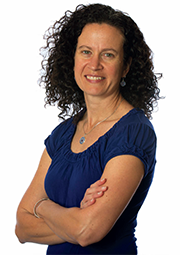 |
Terry WolferProfessor It wasn’t until he started his career as a social work professor at USC that Terry Wolfer found a teaching approach that resonated with him and his students. He was a freshly minted Ph.D. graduate with little formal teaching experience when he arrived at USC in 1996. Michael Welsh, a now-retired education professor, introduced Wolfer to the case method, which uses real-life narratives to teach textbook concepts. “Mike showed me the decision case, a story that ends with a cliffhanger,” Wolfer says. “The students have to formulate a preferred intervention by using their analytical and critical thinking skills, their knowledge of social work theory and research, and their common sense and collective wisdom.” In 1999 Wolfer helped launch a capstone course for Master of Social Work students that revolves around the decision case. Students write a case analysis outlining the problem and how it should be resolved, then discuss the case in depth in class. “There are wrong answers, but there’s no one right answer,” Wolfer says. “Students are developing critical-thinking skills from this approach. They’re learning to think from multiple perspectives, to be aware of their assumptions and to provide practical reasons for their decisions in an articulate way.” Learn more about Terry Wolfer in the UofSC News story Garnet Apple Winner Terry Wolfer is on the Case. |
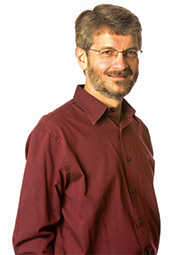 |
